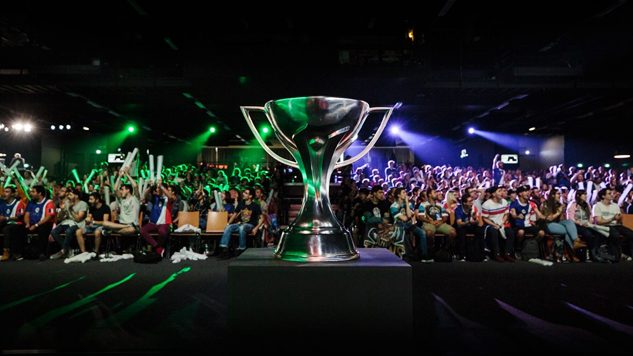Near the end of December 2018, Overwatch player and streamer Ellie was signed to Second Wind, a team in the North American Overwatch Contenders division. The announcement was posted on Second Wind’s Twitter account on Dec. 21. On Jan. 2, 2019, less than two weeks later, the account announced that Ellie had stepped down from the team.
The tweet cites “unforeseen reactions,” but provides no context for the events that lead to Ellie having to resign.
Since the announcement of her inclusion in the Second Wind roster, Ellie had drawn suspicion from some players. Her most recent video on Twitch shows that her in-game level is 151—a level that seems low for her sudden rise as a top DPS player. Rather than being based on skill, levels in Overwatch are based on play-time, so some players wondered as to whether she was using a “smurf” account.
Smurf accounts are known as additional accounts that established players make in order to start their competitive ranks with the experience and skills they’ve honed on their main account. These accounts are then matched with people who are genuinely new at the game, leading to an unfair advantage for the team with smurf players. Smurf accounts are rather common on Overwatch, but they’re not the only reason why Ellie drew scrutiny.
Ellie was also the only player on Second Wind’s roster to not have her legal name listed on the official Overwatch Contenders website. Some also felt like she didn’t speak on voice chat enough, so speculation that someone else was playing for her arose and continued to persist even after she spoke on numerous streams in order to verify herself. As a result, some people started to doubt her identity—and some wanted to go to great lengths to verify it for themselves.
On Dec. 22, Ellie tweeted screenshots of a Discord conversation involving Haunt, another high-level player of the game, who has been banned on Twitter and Overwatch for his conduct. The screenshot shows Haunt and other people planning to dox (the toxic practice of trying to obtain and reveal someone’s personal information online, including their address) her, which they would do supposedly not out of malicious intent, but simply to “figure sh*t out.”
Ellie even faced harassment on Overwatch itself, with teams verbally attacking her and leaving matches. These controversies, along with the rampant misogyny and online harassment women in male-dominated spaces such as the esports industry have to face, led to Ellie stepping down before even playing her first game.
Justin Hughes, the owner of Second Wind, issued a statement via Twitter following the announcement, saying:
When we brought [Ellie] onto the team, people acted like we had brought on a symbol of empowerment. I get that people meant well, but on one side, we had people questioning her legitimacy, issuing threats, etc. while on the other hand, we had people acting like they had found their Messiah. Between needing a player to live up to huge expectations and having to question their own safety, it seems that the OW community isn’t ready to just view a player as just a player. We wanted a player, but it seemed like the public wanted something else.
There is certainly a discussion to be had on the pressure that minorities often face in feeling like they must represent an entire group of people, becoming a symbol rather than just a regular person. Kim “Geguri” Se-yeon, the only woman playing in the Overwatch League, has stated that she would rather be known for her skills than for her gender. It’s a legitimate pressure and to truly support minorities, communities should endeavor to not put people on pedestals, nor form vastly higher expectations of them.
However, several people in the replies to tweets about Ellie’s Contenders exit have been quick to point out that equating people happy to see themselves represented—either as women or simply as people who know what it is like to be a minority—with doxxing, verbal abuse and overwhelming harassment feels like a false and harmful equivalency.
Although it’s understandable that Ellie’s real name not being revealed could make some suspicious, it’s also understandable that Ellie wouldn’t want to use her real name, given the kind of harassment often found on the internet. Additionally, her not always participating in voice chat can be attributed to a number of factors, such as basic shyness, the harassment women tend to face when they join such voice chats, or simply preferring to type things out while she talks to her friends via another method. The kind of hate Ellie has faced is familiar to most women in esports, an industry known for its history of being reluctant to welcome women; this hate is rooted in misogyny, in believing that a woman can’t be good enough to play in an esports league. Geguri faced similar suspicions before she was signed onto the Shanghai Dragons, as well; she had to go to great lengths to legitimize herself as a player. It’s incredibly disappointing to see, especially considering that Overwatch itself has the concept of inclusivity at its core because it shows what the world can accomplish when different people come together.
After the announcement, Ellie simply tweeted, “sorry.”
